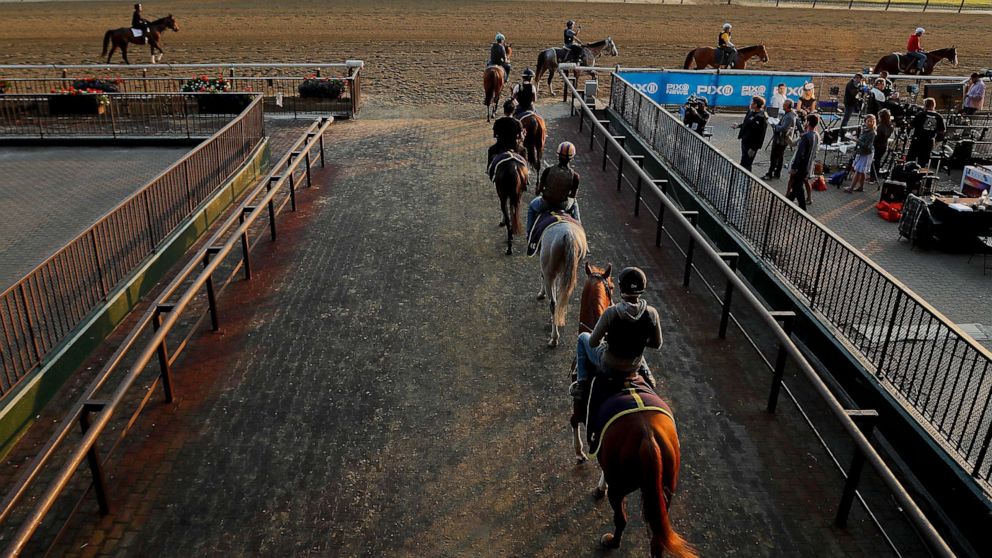[ad_1]
The scandal involved thousands of units of performance-enhancing drugs.
More than two dozen horse training professionals have been federally indicted for a widespread scheme to illegally dope racehorses.
The scheme to deceive regulators and horse racing officials regarding the use of performance-enhancing drugs is responsible for the death of at least one horse, prosecutors said Monday.
The scandal, allegedly orchestrated by veterinarian Louis Grasso, “manufactured, purchased, sold, shipped, delivered, received and administered at least thousands of units of PEDs issues by pharmacies pursuant to invalid prescriptions provided by veterinarians participating in the scheme,” according to court documents filed in the Southern District of New York. The scheme allegedly started in 2017.
To avoid detection that they were doping the racehorses, the participants “routinely defrauded and misled government agencies, including federal and state drug regulators, U.S. Customs and Border Protection, various state horse racing regulators and the betting public,” the court documents state.
The PEDs were designed to be “difficult or impossible” to detect in anti-PED tests and “fraudulent or misleading” labels were created for them, according to the indictment.
A total of 27 veterinarians, trainers and others were charged with counts of drug adulteration and misbranding conspiracy, including Jason Servis, the trainer of Maximum Security, one of the best racehorses in the world that was initially declared the winner of the 2019 Kentucky Derby but was later disqualified.
Also charged were Sarah Izhaki and her daughter, Ashley Leobwitz, who prosecutors describe as suppliers of “an adulterated and misbranded version” of erythropoietin, a drug used to boost a horse’s endurance.
Some of the drugs can cause horses to overexert themselves or mask the horse’s ability to feel pain, which can led to injuries or death, authorities said.
Professional horse racing is a $100 billion industry worldwide, and racehorses can sell for more than $1 million and compete for purses worth millions, the indictment states.
ABC News could not immediately reach Grasso, Izhaki, Leobwitz or Servis for comment.
[ad_2]
Source link

